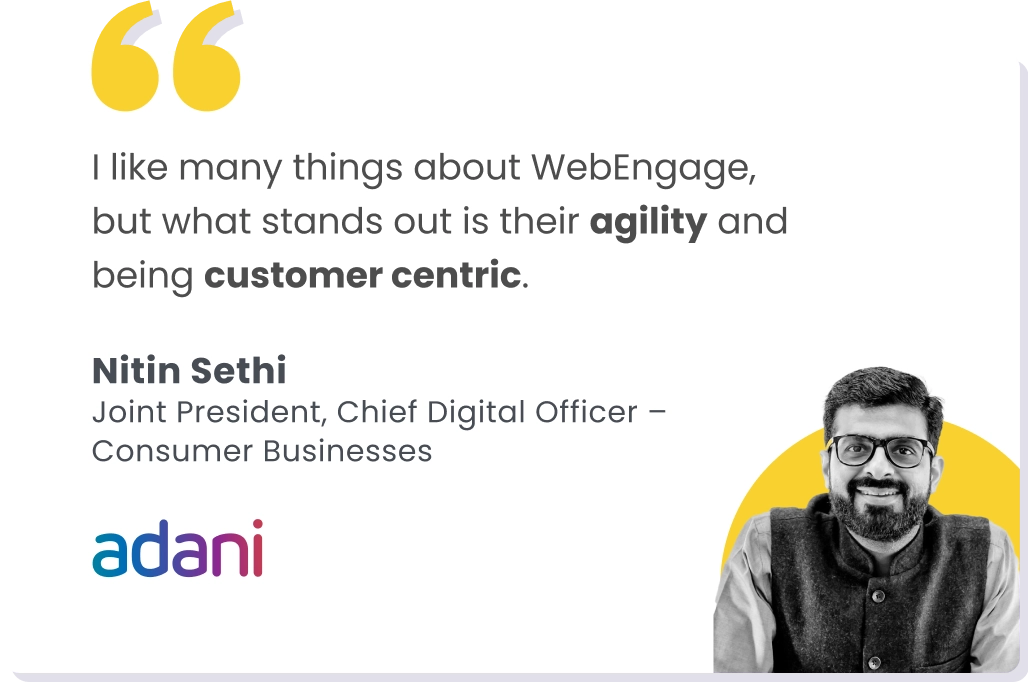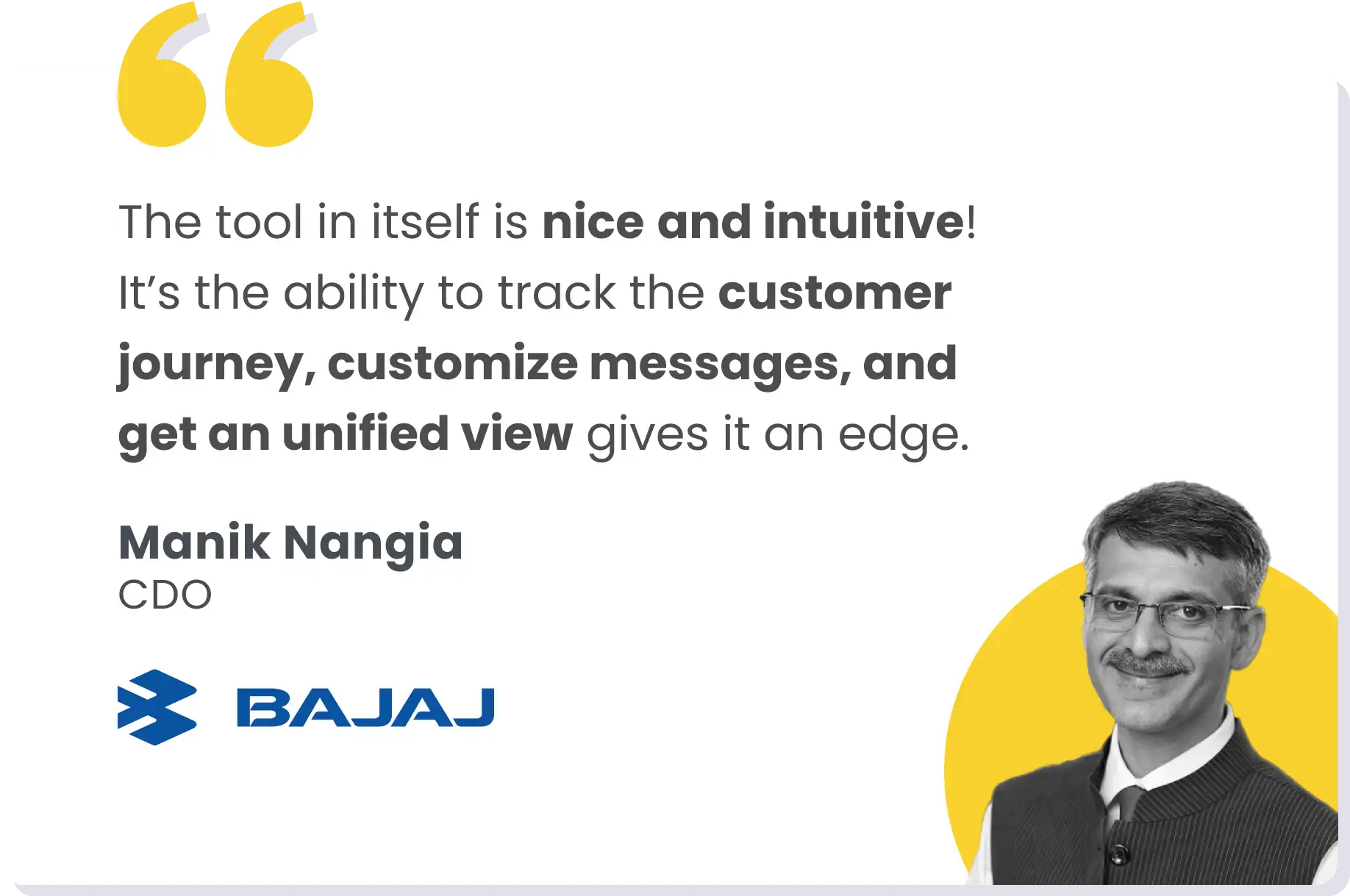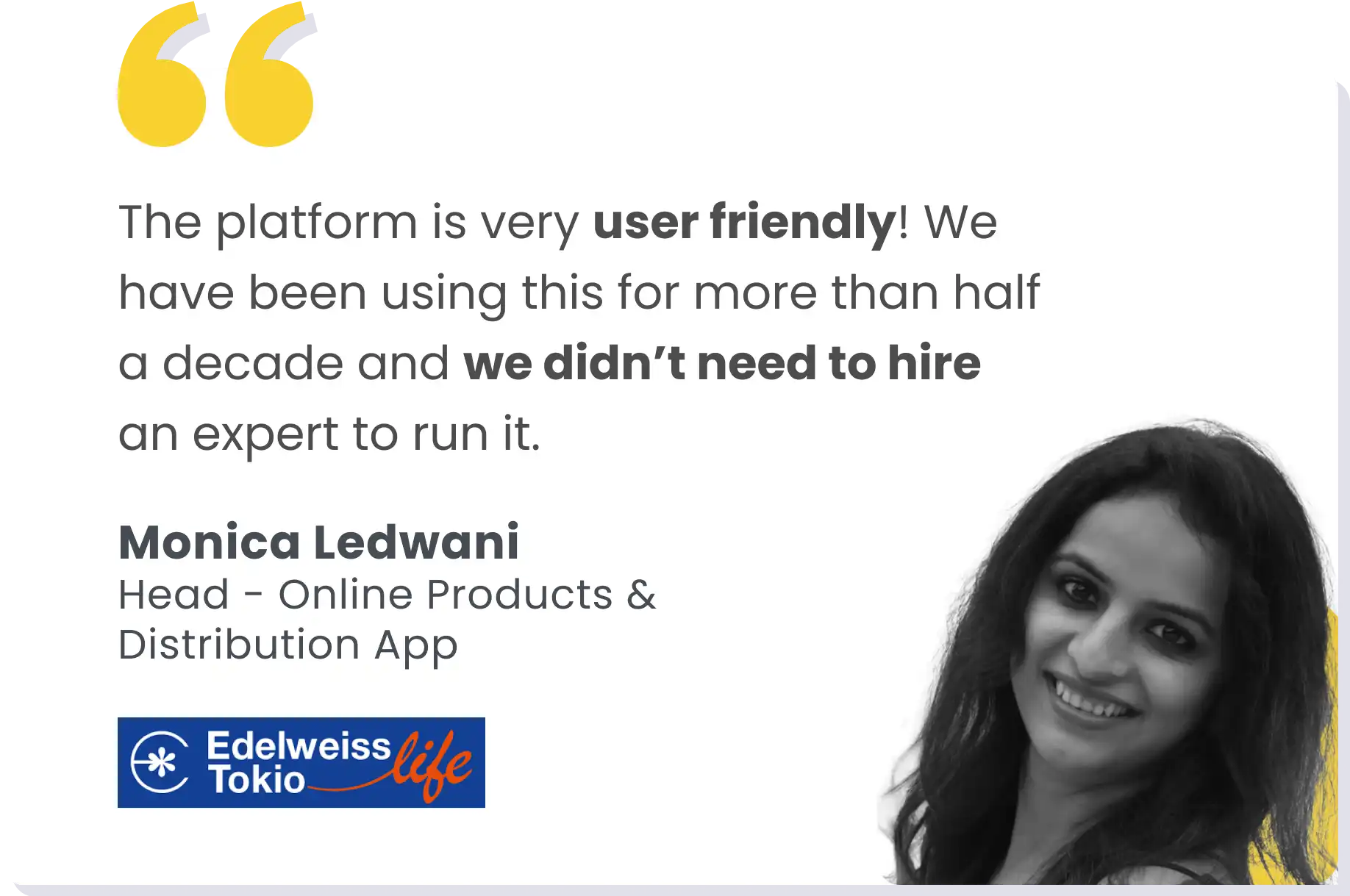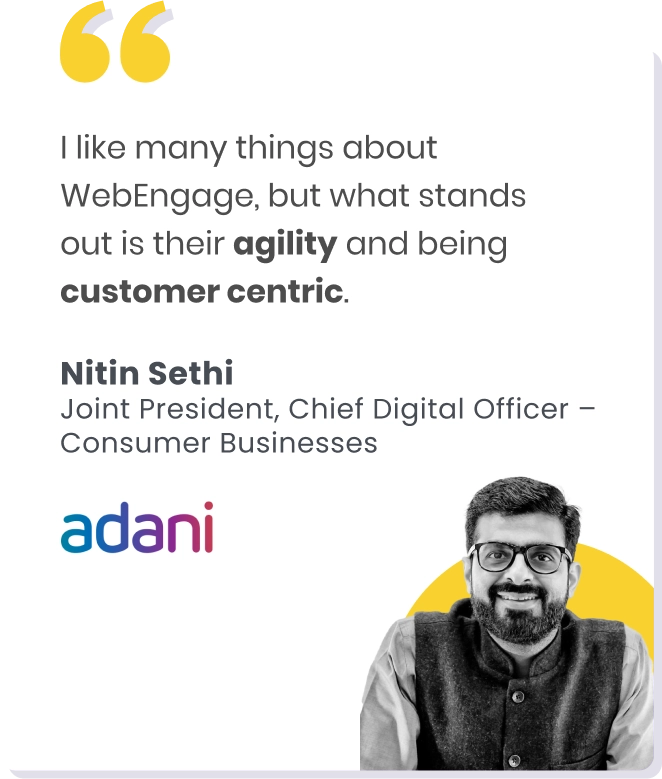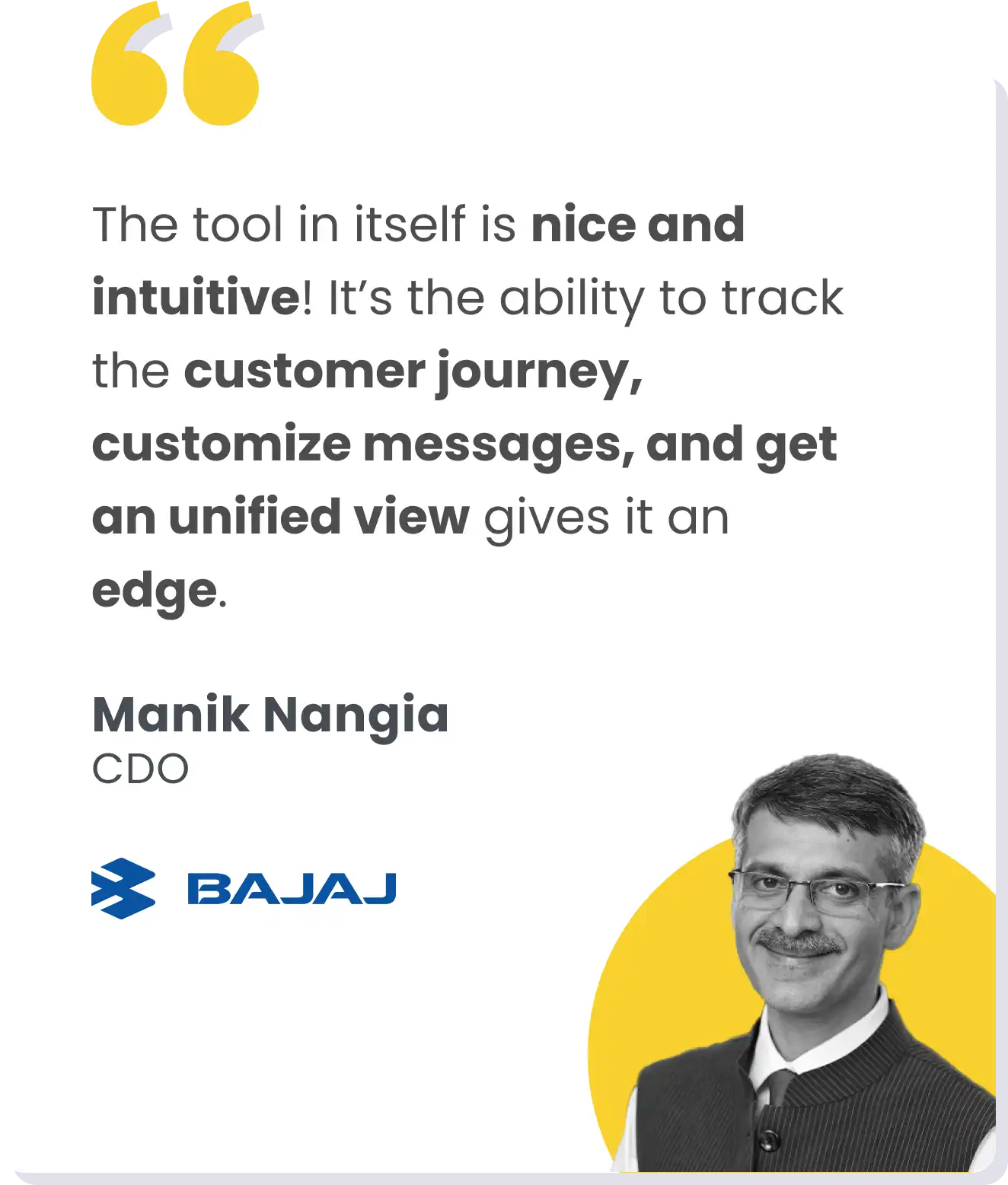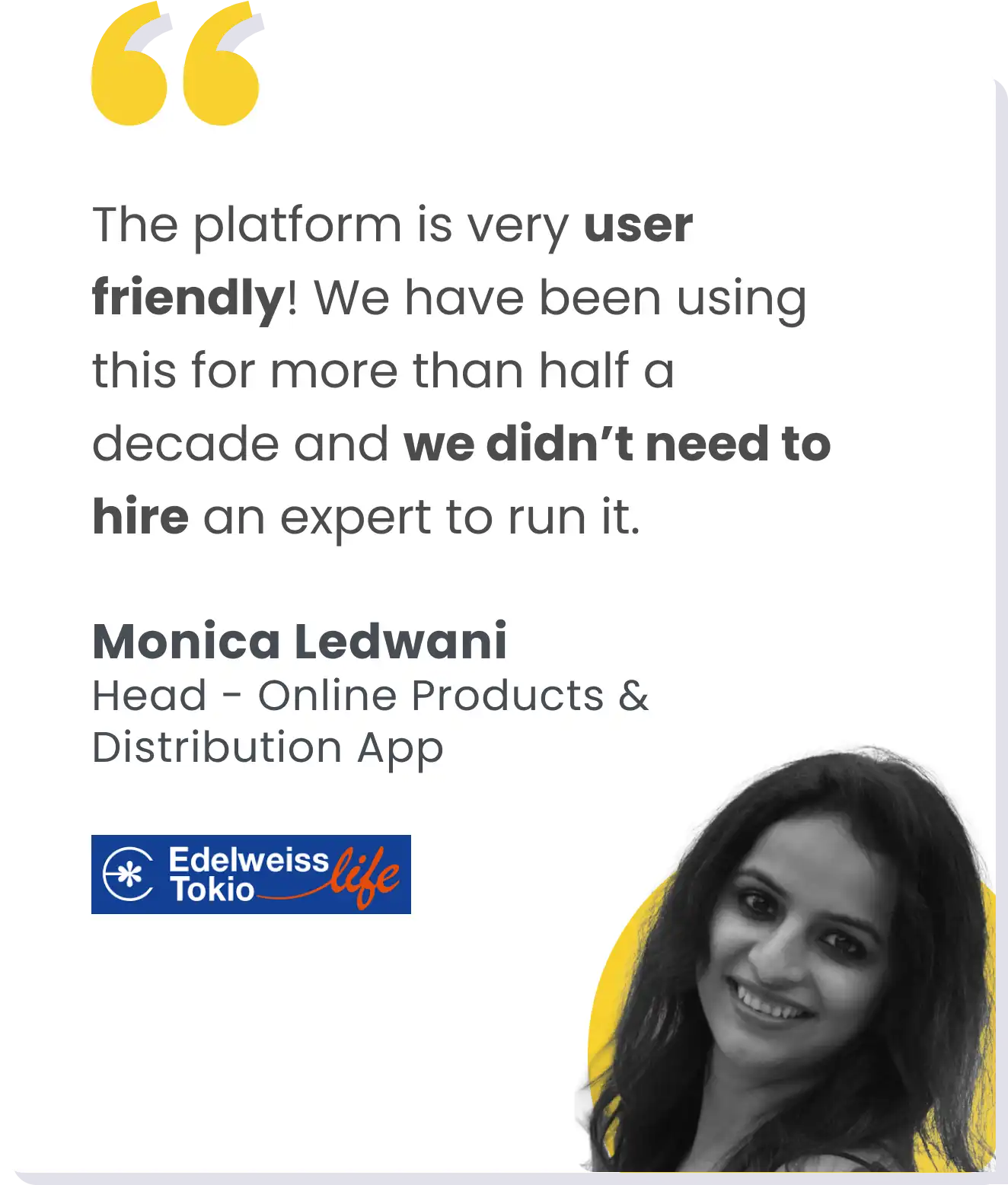We spoke to Madan Kamath, Director & Head of Marketing, at BeepKart about all things retention and customer engagement.
What can you expect?
- More about customer needs and expectations
- How you can overcome a lack of trust, quality concerns, and unfair pricing,
- How engagement here is a trust-building journey, not a transaction,
- More about high-involvement, low-frequency categories,
- Minimizing human bias,
- And, of course, engagement, loyalty, and all things retention.
How do customer needs and expectations differ in the used 2-wheeler market compared to the new two-wheeler segment?
The used 2-wheeler market in India is fragmented & plagued by issues like lack of trust, quality concerns, and unfair pricing. Traditional methods of purchasing used 2-wheelers involve informal transactions, where the burden of verifying the vehicle’s condition and documents falls on the buyer – it’s a “buyer beware” model.
Furthermore, unorganized players often exploit information asymmetry, leaving buyers questioning their choices and experiencing post-purchase dissonance without recourse or protection. In contrast, sellers are left with undervalued offers.
So, while affordability drives purchasing decisions, used 2-wheeler buyers demand quality assurance and transparency – they want to know a vehicle’s history, see real photos, and understand pricing logic. Sellers, too, seek fair price discovery and secure transactions, which traditional channels rarely provide.
At BeepKart, we bridge this gap by creating a transparent buying & selling ecosystem, ensuring both parties feel empowered.
Refurbished two-wheelers with manufacturer-like warranties are the most value-for-money entry point into personal mobility, and buyers can save 30% to 60% on buying a refurbished bike from BeepKart. This market isn’t just about cheaper bikes; it’s about democratizing access to personal mobility while addressing deep-rooted trust deficits.
What role does customer engagement play in driving loyalty and repeat purchases in a market where trust is crucial?
Engagement here is a trust-building journey, not a transaction. We start by dismantling myths. Used 2-wheeler buyers aren’t settling for “cheap bikes” but investing in aspirational mobility. For many, this is their first two-wheeler, symbolizing progress and opportunity.
Our approach is to focus engagement initiatives at the intersection of the stage of the buyer journey & the omnichannel buying process.
Pre-purchase, we use digital tools to reduce cognitive load: Our app lists a wide range of bikes, with detailed inspection reports and honest photos. You can shortlist and compare different bikes. We offer convenient home tests or hub test drives to bridge the trust gap between offline and online.
We offer personalized assistance to shortlist the right vehicles and easy financing with reputed banking and NBFC brands during and after purchase. Our 3-day return policy and up to 2-year warranty act as safety nets.
But engagement goes beyond transactions. We’ve fostered a community of buyers who’ve made wise choices & unlocked personal mobility through our bikes. This emotional connection and operational reliability (evident in our 4.7/5 rating from 9,000+ reviews) turn customers into advocates.
Given its unique dynamics, how does BeepKart approach customer retention and repeat purchases in the used 2-wheeler market?
Retention begins by redefining ownership. Used 2-wheeler buyers often face post-purchase anxiety, “Did I make the right choice?” We counter this through a 15-day comprehensive warranty and value-added services like extendable warranties and vehicle servicing, which mimic the new vehicle experience.
However, deeper retention stems from human-centric interactions, which ensure the consumer gets the right vehicle for them at the right price.
Often, consumers come into our funnel with a budget and a poor set of benchmarks based on traditional channels. Our “customer champions” understand the consumers’ requirements, guide buyers from test rides to financing, and create personalized journeys.
This is a high-involvement, low-frequency category, so repeats are going to be hard by definition. However, it takes just one great experience for consumers to reconsider the used 2-wheeler option as a smart choice, driving word of mouth, which in turn encourages more buyers and works as an acquisition funnel.
Does BeepKart leverage referral marketing to grow its customer base, and if so, how does your referral program drive engagement and trust?
Our referral program runs throughout the year, rewarding both the referrer and the referee. However, our strong word of mouth and organic recommendations from happy customers have consistently performed better than any financial incentive—this speaks volumes of how solving true consumer problems and providing a great experience can really drive engagement and organic traction.
What strategies has BeepKart implemented to set itself apart in an industry often plagued by inconsistencies and lack of transparency?
For BeepKart, the differentiation has been building trust at every touchpoint. Building trust is expensive, time-consuming, requires patience, and is a long-term game—which for a start-up is a huge commitment—and we are proud to shoulder this responsibility.
We recognized very early on that trust requires radical transparency, consistency, and reliability every single time. We ensure a high degree of integrity, and this goodness naturally flows to the end consumer.
For example, unlike local dealers who hide vehicle flaws, we display real photos and share 80-point inspection reports for free. In a market where affordability is key, our transparent pricing model ensures buyers pay a fair price for their vehicles with no hidden costs or surprise fees. Our pricing algorithm eliminates haggling—a practice that erodes trust in traditional channels.
Ethically, we avoid sourcing accident-damaged or repossessed bikes, even if they’re cheaper because they are of significantly lower quality due to a lack of maintenance.
This integrity extends to sellers: we evaluate vehicles in their presence or with their media (like videos) and explain pricing factors transparently.
We understand that a consumer may not technically experience quality, and every bike and experience is subjective, so we offer a 3-day no-questions-asked return policy—a feature that even OEMs giving you brand-new vehicles won’t offer!
How does BeepKart use technology to address key pain points such as vehicle quality verification, pricing transparency, and customer support?
From the very start, BeepKart was envisioned as a full-stack omnichannel platform with technology as its backbone. In a fragmented and unorganized market, technology allows us to solve multiple issues while ensuring quality control and great consumer experiences.
For example, our tech-enabled vehicle inspection protocols standardize evaluations across 80+ core parameters, minimizing human bias. For pricing, our dynamic model analyzes real-time market data, ensuring fairness. Our app lets buyers compare bikes side-by-side, schedule test rides, and access financing in minutes.
Behind the scenes, CRM systems track interactions, so a customer’s online queries seamlessly transition to offline support, ensuring the journey is hassle-free—a huge step up from traditional channels.
With AI, we have built the capability to accurately diagnose the condition of a vehicle across all the mainline OEMs with more than 200+ model/variant/age combinations without actually physically checking the vehicle—this significantly reduces the barriers to accurate pricing for sellers.
This is technology being leveraged at scale, solving for real human needs.
Why do Used 2-wheeler buyers require a different approach than new vehicle buyers, and how does BeepKart cater to these specific needs?
New 2-wheelers are standardized; there are a few models to choose from, and most choices are between color and model. The decision on brand and vehicle was primarily made before coming into the showroom. There are no surprises here.
But for used 2-wheelers, every bike is unique. It is a heterogenous market, where even the experience of riding two similar vehicles can be exceptionally different because of how previous owners handled the vehicles. Simply put, it is very subjective.
In the traditional purchase experience, buyers are responsible for everything (buyer-beware rules). Even if they have an expert to help them, there is no guarantee of how the vehicle will perform after a few weeks, resulting in post-purchase dissonance. This has been how the market worked for decades, which is why the whole category is seen with suspicion.
Hence, used 2-wheeler buyers focus on risk mitigation. They juggle complex questions: “Is this bike reliable?” “Am I overpaying?” “The vehicle looks great from the outside; what parts have been swapped inside?”
To simplify this, we educate.
Our vehicle listing includes jargon-free explanations of technical terms, easy-to-understand inspection reports, photos of the vehicle, and past ownership details.
We also acknowledge that affordability isn’t just about price—it’s about minimizing future costs. By offering warranties and refurbishing bikes with OEM parts, we shift the narrative from “doubt” to “smart choice.”
Consistent vehicle experience is really hard due to the subjective nature of the vehicle and the varied nature of consumer expectations. So, every bike is covered with a 15-day comprehensive warranty and a 3-day/100-km return policy. When we offer these kinds of fair terms, buyers believe in and trust us for their bike needs.
What systems or processes ensure BeepKart maintains high-quality vehicle standards while scaling operations?
Quality at scale demands systematic rigor. Every bike undergoes refurbishment by technicians trained on OEM standards, using original spare parts. We’ve digitized checklists to reduce human error. For instance, tire tread depth is measured with IoT-enabled tools and is not eyeballed.
All functional, ops & city teams share learnings via centralized dashboards, ensuring a Chennai bike meets the same standards as one in Bangalore. Quality & trust cannot vary by geography, so as we scale, it’s about ensuring that we focus on being consistent with offering great quality bikes that are reliable.
BeepKart combines online convenience with offline elements like test rides and experience centers to address common trust issues in the used two-wheeler market.
How do you ensure these online and offline touchpoints work together seamlessly to deliver customers a cohesive and trustworthy buying experience?
This is a high-involvement and infrequent category that is primarily offline and has not seen much innovation or use of tech to solve consumer problems. But we know that an omnichannel play is the need of the hour, where digital solves for transparency and physical presence offers confidence.
Thus, our phygital model eliminates friction. Customers might discover us online, compare bikes on the app, and then book a doorstep test ride. Offline, our experience centers double as education hubs—staff explain refurbishment processes. Crucially, well-designed product handoffs & data bridges these worlds: a customer’s online browsing history informs offline recommendations.
For instance, if someone repeatedly views scooters according to certain filtered criteria, we ensure that the best deals and offers for their scooter criteria are sent to them. We reduce the friction of quality assessment by giving them a test ride at their home for free and enabling a purchase on the spot—without them ever having to come to a showroom or having to wait for days!
As BeepKart grows, how do you plan to engage customers in Tier 2 and Tier 3 cities, where affordability and accessibility are critical?
The consumer problem to solve in any geography, including Tier 2 and Tier 3 cities, will be similar. More engagement and education are required to help consumers make an informed choice. However, this is a supply-constrained market, which will be the primary problem to solve as we move to smaller cities.
How does promoting Used 2-wheeler vehicles align with broader sustainability goals, and how is BeepKart amplifying this message?
By extending a 2-wheeler’s lifespan by 5–7 years through refurbishment, we have already improved its quality compared to what it would have been without it. At the same time, by promoting used 2-wheelers, we reduce the carbon footprint of manufacturing new vehicles. We also educate consumers by raising awareness about the environmental benefits of buying Used 2-wheeler vehicles.
What changes do you anticipate in the used 2-wheeler two-wheeler market in the next five years, and how is BeepKart positioning itself to lead this evolution?
The Used 2-wheeler market will continue growing in the foreseeable future for some key reasons:
- Low Penetration: Despite being a major two-wheeler market, India still has relatively low penetration (~16%) compared to countries like Vietnam (~50%) & Indonesia (~45%). These countries have good 2W density, so we have a long way to go.
- Affordability Gap: New two-wheeler prices have been steadily increasing, with recent hikes announced by major manufacturers. This rising price trend is not in line with individual income growth, creating a widening affordability gap.
- Shifting consumer sentiments: The average age of vehicle ownership is constantly decreasing, and the average period of owning a vehicle is dropping. So, more buyers and sellers are also coming into the market, and younger buyers (who are going to be digital first) will prioritize value and low-cost ownership.
Today, there is no practical reason to buy a new 2-wheeler. New bike prices are increasing rapidly, and their value drops significantly after purchase in the initial two to three years.
Refurbished two-wheelers with manufacturer-like warranties are the most value-for-money entry point into personal mobility, and buyers can save 30% to 60% on buying a refurbished bike from BeepKart.
All these factors suggest that the used 2-wheeler market is on the cusp of a huge change, and digital-first, trustworthy brands that make the journey easier will win.
Two recent category-level shifts will also redefine the sector:
- EV Dominance: The share of used EVs will be dominated by organized players, as the technical know-how, assessing battery health, etc., requires technical expertise unattainable for local dealers. Brands like BeepKart that have high trust and a strong understanding of the used 2-wheeler buyer will be at an advantage. Used EVs will have a strong demand in non-metro markets as well.
- Market Formalization: OEMs will partner with platforms like ours to attract more consumers to the brand franchise at lower price points that are unattainable in an inflationary new 2-wheeler market, thereby legitimizing used 2-wheeler as a strategic channel.
There are around 26 crore two-wheelers and five crore cars on Indian roads. Relative to the country’s population, there are 185 two-wheelers and 34 cars for every 1000 people. For a country of 140 crores, U2W is the only solution to drive personal mobility, which will empower educational and economic growth for Indian Households.
By leveraging technology, implementing stringent quality controls, and prioritizing customer satisfaction, BeepKart is redefining the norms of this industry. Our innovative approach benefits individual consumers and contributes to the formalization and growth of the used 2-wheeler market in India.
As more consumers recognize the benefits of BeepKart’s modern, trustworthy platform, the company is poised to become the go-to destination for used 2-wheelers in India, setting new standards and reshaping the industry’s future.
BeepKart is on a mission to bring affordable personal mobility to millions. Trust, convenience, and value for money make us a smarter choice for buyers than unreliable sources of used 2-wheelers and increasingly expensive new 2-wheelers. We hope customer love will make BeepKart bikes a household name one day!
We thank Madan for making such an insightful and incredible contribution.






